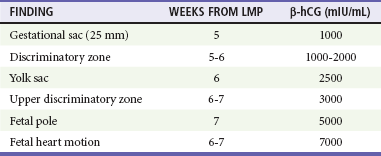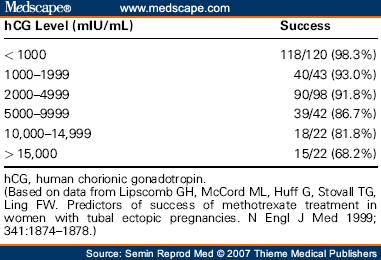Serial Quantitative Beta-hcg

Nov 08, 2012 Serial beta HCG; Repeat quantitative beta HCG; Human chorionic gonadotropin blood test - quantitative; Beta-HCG blood test - quantitative;.
Diagnosis and Management of Ectopic Pregnancy Combined transvaginal ultrasonography and serial quantitative beta-hCG measurements are approximately.
Quantitative hCG Blood Test
Back to TopAlternative Names. Serial beta HCG; Repeat quantitative beta HCG; Human chorionic gonadotropin blood test - quantitative; Beta-HCG blood test.
Human chorionic gonadotropin, or hCG, is a hormone produced in the body during pregnancy. An hCG blood test measures the level of hCG detectable in the blood. The tests can be qualitative returning a yes/no answer of whether the woman has hCG in her blood or quantitative hCG tests returning a measurement of the amount of hCG in the blood. Why Doctors Order hCG Blood Tests:
Some doctors test hCG levels in early pregnancy as a routine part of prenatal care for all women. Others use urine-based hCG tests to confirm pregnancy and order blood tests only when they need more information about what is going on in a particular patient s pregnancy, such as for a woman having vaginal bleeding in pregnancy or other miscarriage symptoms.
Doctors may want to see whether or not the hCG is in a normal range for a specific point in pregnancy, or they may want to look at hCG doubling times in two blood tests over a period of days to get an idea of whether the pregnancy is progressing as it should be.
How to Prepare for an hCG Blood Test:
An hCG blood test does not require any special preparation or planning, and you do not have to fast before having your blood drawn. The results should not be affected by the time of day you get your blood drawn or the amount of water you drink before the test.Having Serial hCG Blood Tests:
Serial hCG blood tests are two quantitative hCG blood tests done two to three days apart. In early pregnancy, the hCG level is supposed to double roughly every two to three days. If the hCG doubling time is slower or if the level decreases over time, this is a possible sign of miscarriage or ectopic pregnancy.
If you are having hCG levels checked because of miscarriage symptoms in early pregnancy, your doctor will most likely need you to have serial blood tests rather than a single hCG level in order to get information on how your pregnancy is progressing.What the Results Mean:
Your doctor is the best person to tell you what your hCG levels mean, because normal hCG levels vary heavily from person to person, and single hCG levels even single low hCG levels do not give much information on how a pregnancy is progressing.
Your doctor can compare the information from your hCG results to other information in your medical history, such as whether or not you are having miscarriage symptoms, in order to make a diagnosis.
In general, however, if the hCG levels are dropping in the first trimester, this probably a sign of impending miscarriage. Slow-rising hCG levels that do not double every two or three days in early pregnancy can be a sign of problems but can also still result in a normal pregnancy.
- Quantitative hCG Blood Test. Written by Karla Blocka and Brian Wu Medically Reviewed by. quantitative serial beta-hCG test; repeat quantitative beta-hCG.
- Jan 13, 2016 HCG blood test - quantitative. URL of this page: Serial beta HCG; Repeat quantitative beta HCG; Human chorionic gonadotropin blood test - quantitative.
- Dec 10, 2014 Video embedded In very early pregnancy, doctors may use serial quantitative hCG blood tests to compare levels of hCG over two to three days. This.
- What is serial beta hcg. A quantitative human chorionic gonadotropin HCG test measures the specific level of HCG in the blood. HCG is a hormone produced during.


HCG blood test - quantitative Definition A quantitative human chorionic gonadotropin HCG test measures the specific level of HCG in the blood.
hCG
What Is the hCG Quantitative Blood Test.
human chorionic gonadotropin hCG blood test measures the level of
hCG hormone present in a sample of your blood. HCG is a hormone that is
produced during pregnancy. Your doctor may refer to the hCG quantitative test by
quantitative serial beta-hCG testrepeat quantitative beta-hCG testbeta-hCG blood testquantitative blood pregnancy test
In some cases, the hCG quantitative blood test may also be used
to evaluate and manage certain types of cancer.
What Is Human Chorionic Gonadotropin hCG.
Cells in the placenta make human chorionic gonadotropin, or hCG.
The placenta is the sac that nourishes the egg after it s fertilized and
HCG can first be detected in a blood sample about 11 days after
conception. Levels of hCG continue to double every 72 hours. They reach their
peak around eight to 11 weeks after conception. HCG levels then decline and level
off, remaining steady for the rest of your pregnancy.
Why Is the hCG Quantitative Test Performed.
The hCG quantitative test is performed to:
confirm pregnancydetermine the approximate age of the fetusdiagnose an abnormal pregnancy, such as an ectopic
pregnancydiagnose a potential miscarriagescreen for Down s syndrome
In some instances, the hCG blood test is used to screen for
pregnancy before a woman undergoes certain medical treatments that could potentially
harm a developing baby, such as X-rays The blood test is a standard precaution
that s conducted before undergoing one of these procedures to make completely
sure you re not pregnant. This ensures that you re protected and that the fetus
isn t harmed by the procedure.
How Is the hCG Quantitative Test Performed.
The hCG quantitative test measures the level of hCG hormone in a
blood sample. A healthcare professional takes a blood sample by following these
An elastic band is wrapped around your upper arm
to stop the blood flow and to make the veins in your arm more visible so the
needle can be inserted easier.A vein is located and the skin around the vein
is cleaned with alcohol.The needle is inserted into the vein and a tube
is attached to the end of the needle to collect the blood.After enough blood is collected, the elastic
band is removed from your arm.As the needle is removed, cotton or gauze is
placed onto the puncture site.Pressure is applied to the cotton or gauze, and
While the needle is being inserted, you may feel a brief stinging
or pinching sensation, or you may not feel anything at all. When the needle is
in the vein, you may feel minor discomfort or stinging. Afterward, you may feel
some mild throbbing at the puncture site.
After your hCG levels have been measured in the blood sample, the
results are sent to your doctor who may request an appointment with you to
discuss the results of the test.
There are no particular preparations required for the hCG quantitative
What Risks Are Associated with the hCG Quantitative Test.
Risks involved with having blood taken are minimal. There may be
a small amount of bruising where the needle was inserted, which can be
minimized by applying pressure to the area for several minutes after the needle
In very rare cases, the following may occur:
excessive bleedinglightheadednessfaintinghematoma, which happens when blood accumulates
under your skininfection at the needle site
Understanding hCG Quantitative Test Results
When your lab test comes back, your doctor will tell you what
your hCG levels are. These levels are measured in milli-international units of
hCG hormone per milliliter of blood mIU/ml.
This table shows the normal hCG levels during pregnancy for each
week from your last menstrual period, according to the American
Normal hCG levels in non-pregnant women are less than 5.0 mIU/ml,
and in postmenopausal women normal levels are anything less than 9.5 mIU/ml.
If your hCG levels are outside of the normal range, it could mean
a variety of things. Your doctor will help you interpret the results.
Levels of hCG that are lower than normal could mean:
a miscalculation of pregnancy datinga possible miscarriage or blighted ovuman ectopic pregnancy
Levels of hCG that are higher than normal could mean:
a miscalculation of pregnancy datinga molar pregnancya multiple pregnancy, such as twins or triplets
No test is 100 percent accurate every time. The hCG test can give
both false-negative results and false-positive results for pregnancy. Your
doctor will help you figure out your results or do follow-up testing if there s
If an hCG test comes back negative, that generally means that you re
not pregnant. However, if the test was performed too early in the pregnancy,
before your body has had time to produce enough hCG, you can get a false
negative. Because hCG levels change so quickly during early pregnancy, the hCG
quantitative test should be repeated within 48 to 72 hours to observe how the
hormone level is changing. Certain drugs such as diuretics, promethazine, and
tranquilizers can also give false-negative test results.
On the other hand, samples that have protein, blood, or excess
pituitary gonadotropin in them can cause a false-positive hCG test. It s also
possible to get a false-positive result if your body produces certain types of
antibodies that have fragments of the hCG molecule. If there is any doubt about
the results, a different testing method can be used to confirm.
Don t panic if your numbers don t exactly match the normal levels.
These figures are estimates, and you can have hCG levels that are lower than
normal and still have a healthy baby. You ll receive an ultrasound around five
to six weeks which is considered much more accurate than your hCG numbers. If
there s reason to be concerned about your pregnancy, multiple hCG readings done
a couple of days apart will be used to assess your situation.
Numbers can vary, so it s important to listen to your doctor
concerning the health of your pregnancy. Your doctor will check your hCG levels
if they detect a problem. Ask questions if you re concerned about something and
let them know immediately if you re experiencing any problems.

